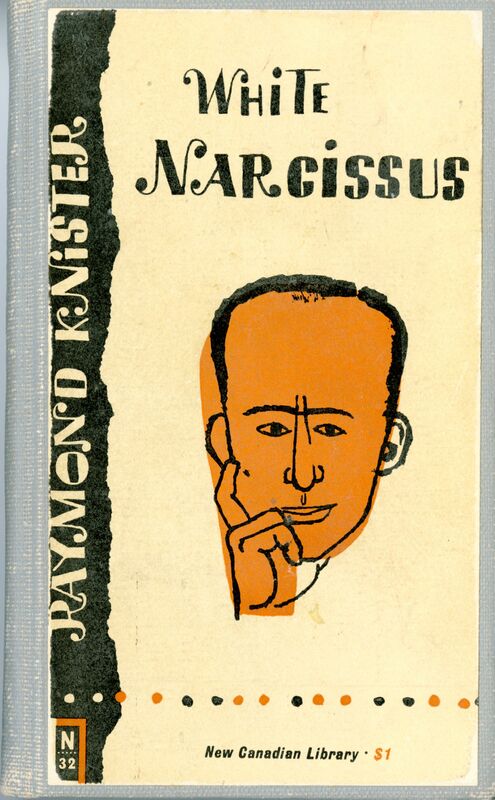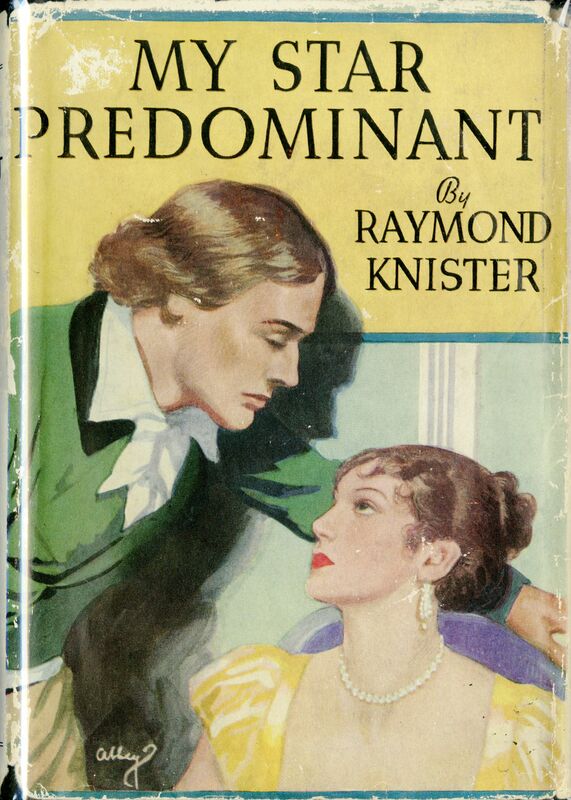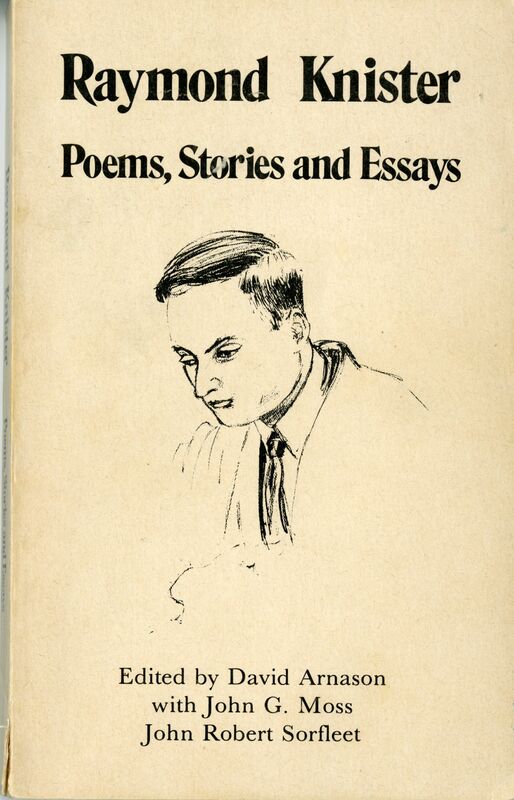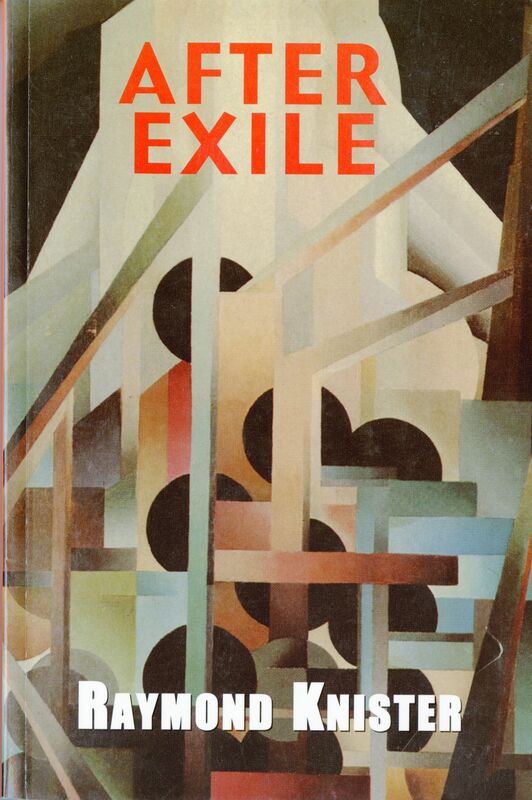In publication
A bibliography of Raymond Knister’s published works, and ones inspired by him.
Novels
Knister, R. (1929) White narcissus. McClelland and Stewart Limited.
"Nothing quite like White Narcissus, with its combination of a psychological approach to the main characters with a realistic and yet poetic treatment of the Ontario rural scene, had appeared before in Canadian fiction...Farm life and the country atmosphere and landscape are felt and understood at the deepest level of Knister's spirit. They are the substance of this painter-poet's charm and the most endearing and enduring quality in his verse and short stories, as they are in White Narcissus. In his writing, whether in verse or prose, Knister's originality lies in bringing to life in his pages an atmosphere in which realism, that paints sharply and clearly the Ontario landscape or the subjects of farm life, is combined with realism's own kind of poetry. It is a new note in Canadian fiction and almost new in Canadian poetry and it is Knister's greatest gift and the source of his best writing.”
From “Introduction” by Philip Child, in White Narcissus by Raymond Knister. (Toronto:McClelland & Stewart Ltd. 1962, pages 11-13)
“Callaghan, in an afterword written for this edition, says Knister has 'the smell, the feel, the taste of farm things in his bones.’”
From “Afterword” by Morley Callaghan in White Narcissus by Raymond Knister. (New Canadian Library, 1990)
Knister, R. (1934). My star predominant. Ryerson Press.
This novel is based on the life of the poet, John Keats, and paints a vivid description of him, and of nineteenth century life, with references to his contemporaries, such as Shelley.
In Knister’s description of the death of Keats, he requests the following inscription for his tomb: “Here lies one whose name was writ in water”.
The publishers considered this novel to be “a literary find”, and it was the one which won him first prize in the Graphic Publishers’ Canadian Novel Contest in 1931. It was published two years after Raymond Knister’s untimely death by drowning.
Works edited by him
Knister, R. (Ed.). (1928). Canadian short stories. MacMillan Co. of Canada Ltd.
“Knister was commissioned by Macmillan to edit an anthology of Canadian short stories. Canadian Short Stories appeared in 1928: it is thought to be the first anthology of its kind, and Knister’s introduction is still considered a helpful discussion of the Canadian short story.”
From “Introduction”, by Joy Kuropatwa, in Windfalls for Cider...The Poems of Raymond Knister edited by Joy Kuropatwa. (Windsor: Black Moss Press, 1983, page 12)
Collections of poetry and stories
Knister, R. (1949). Collected poems. Ryerson Press.
The poems in this volume were collected and revised by Knister, and only a few were published since, in anthologies. The book also contains a photograph of Raymond and his daughter, Imogen, in 1932, and is dedicated to her.
In her memoir Dorothy Livesay quotes from Knister’s poem, “Change”, which is carved on his headstone at Port Dover, Ontario:
“The sea breathes, or broods, or loudens;
Is bright or is mist and the end of the world;
And the sea is constant to change.
I shall not wonder more, then,
But I shall know.”
Knister, R. (1972). Selected stories of Raymond Knister (M. Gnarowski, Ed.). University of Ottawa Press.
Select short stories by Knister with an introduction by Michael Gnarowski. Includes “Elaine” and “The fate of Mrs. Lucier,”originally published in This Quarter.
Knister, R. (1975). Raymond Knister: Poems, Stories and Essays (D. Arnason, J. Moss, & J. R. Sorfleet, Eds.). Bellrock Press.
This edition contains a biographical note by Marcus Waddington, a sketch of Raymond by his wife, Myrtle, and a chronological history of Raymond Knister, compiled by Bonita O’Halloran.
Knister, R. (1975). Journal of Canadian Fiction: Special Knister Edition (D. Arnason, J. Moss, & J. R. Sorfleet, Eds.)(Vol IV, No. 2). Bellrock Press.
In addition to Raymond Knister’s poems, stories and essays, this edition also includes a biographical note by Marcus Waddington, a sketch of Raymond by his wife, Myrtle, and a chronological history of Raymond Knister’s life, compiled by Bonita O’Halloran.
An interesting handwritten note appears on the flyleaf: “This book contains many misprints and errors—I.K.G.” (Imogen Knister Givens)
Knister, R. (1976). The first day of spring : stories and other prose (P. Stevens, Ed.). University of Toronto Press.
Peter Stevens, the editor, considers Raymond Knister to be one of “the first truly modern writers in Canadian Literature”. This edition contains a variety of Knister’s prose, both fiction and non-fiction—stories, sketches and criticism.
Knister, R. (1983). Windfalls for cider...the poems of Raymond Knister (J. Kuropatwa, Ed.). Black Moss Press.
In his preface, James Reaney describes Raymond Knister’s poems as the “images from the Essex County world he loved so much, and they suggest that although he did not take professionally to farming, he did see himself as a poet-farmer with his poems as apples or blades of grass whose orchard and barn he kept handy in the spaceless world of the imagination”.
Joy Kuropatwa, in her introduction, states that Raymond Knister was considered one of Canada’s first modern poets, and that the purpose of this particular collection was to “make available more of Knister’s poetry, and not to provide a definitive edition”.
This edition contains photographs of Raymond Knister, Knister with his wife, and with his daughter.
Knister, R. (2003). After exile: a Raymond Knister poetry reader (G. Betts, Ed.). Exile Editions.
This edition includes photographs of Raymond Knister, and sketches of him drawn by his wife, Myrtle.
In the section entitled “On Raymond Knister” (page 105-107), his obituary appears as it was printed in the Border Cities Star, on August 30, 1932.
There is also a letter dated August 30, 1932, from Edward Herman to Raymond’s widow, Myrtle, in which he touchingly consoles her, that “Raymond’s star is still in the ascendant”.
Knister, R. (2006). Boy remembers in the field. Black Moss Press.
A chapbook of select poems by Raymond Knister showcasing his range in style and attention to the details of southwestern Ontario life.
Knister, R. (2006). There was a Mr. Cristi. Black Moss Press.
A novel, taking place in a rooming house, inspired by stories told to Knister by his sister-in-law, Minnie Gamble. Anecdotes and individuals encountered by Gamble are woven into the narrative of the story.
Works inspired by Raymond Knister
Maylor, M. (2007). Full depth: the Raymond Knister poems. Wolsak and Wynn.
A debut collection of impressionistic biographical poems by Micheline Maylor, who later goes on to serve a term as the Poet Laureate of Calgary.
Inspired by the tragic circumstances of Raymond Knister’s death, this poetry collection imagines the emotional state and reactions of those who would have experienced it first hand.
Fenner, V. (Director). (2015) After Exile broadcast [Radio program]. In S. Wadhams (Producer), Living Out Loud. CBC.
“A conversation on a train returning to a small hometown village.” This is a radio piece based on “After Exile” by Raymond Knister, conceptualized by Victoria Fenner for the CBC.




